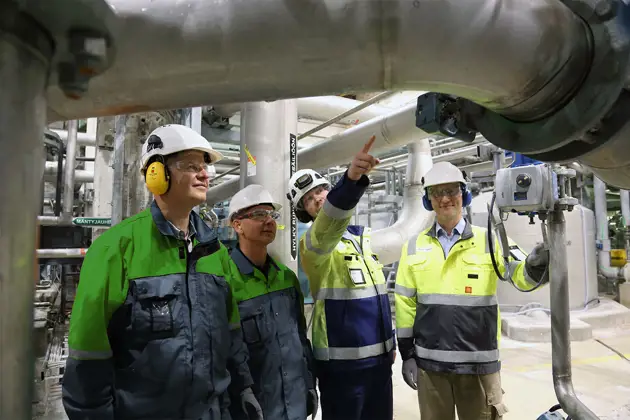In a more and more resource-constrained world, we are committed to finding new solutions to advance the circular economy. By providing long-lasting products and product life cycle services, we are helping our customers reach their sustainability targets. To decrease the environmental impact of our own operations, we use recycled materials and recover production waste in our manufacturing processes. Various recycling initiatives implemented with our partners make use of excess materials, such as used workwear or wooden packaging.
Helping our customers capture value
Neles valve solutions play a part throughout our customers’ circular economy value chain. By working closely with our customers, we can understand their sustainability objectives and determine how we can help them reach the set targets.
Our durable products help process industry companies process natural resources and recycle materials to create valuable products.
Our durable products help process industry companies process natural resources and recycle materials to create valuable products. During recycling processes, our flow control solutions are used to recover usable resources or energy from waste, or create new by-products, such as bio diesel produced from waste flows.
Extending the product life cycle and decreasing environmental impact starts with designing products that are long-lasting and have a modular structure that allows for the addition or replacement of components as needed. With our repair and maintenance service, we can optimize the durability of wear parts and extend the product life, while upgrading existing components to help improve product performance.
On top of product design and life-cycle services, sourcing, manufacturing, and logistics play an important part in optimizing our customers’ circular value chain. Sourcing recyclable materials, maximizing environmental efficiency, and recycling in manufacturing, as well as optimizing logistics through our global presence and planning operations efficiently all help our customers create value and reach their sustainability targets.
One of the latest examples of how we support our customers’ circular value chain is Klabin, Brazil’s largest paper manufacturer, exporter, and recycler. Klabin’s Ortigueira mill produces short-fiber pulp, long-fiber pulp, and fluff pulp. With the help of our performance solutions, process variabilities were reduced within two years from a variable average of 25–30% to an average of 1.5%, bringing the needed reliability and achieving the company goal of chemical savings.






